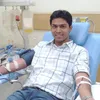BABIES!
Most people love babies and want a few at some point in their life. But for about 30 million infertile couples in India, alone, babies are an out-of-reach pipe dream.
When Vasanthi Palanivel, a biotech scientist with two decades of experience, saw her friend, Srinivas Chari and his wife undergoing issues with conceiving a baby - and the immense grief that failed treatments caused - she decided to do something about it.
Vasanthi’s work in the biotech space focused specifically on tissue engineering and stem cell-based treatments, and she decided to use that expertise to develop a regenerative medicine-based infertility treatment, which she claims is better than most traditional treatments available today.
Fertility treatments are expensive - around Rs 1 lakh to Rs 1.25 lakh, per cycle, according to price ranges outlined online by leading IVF treatment centres, have low success rates, and, more importantly, are not covered by insurance. Only a percent of the 30 million infertile couples in India seek IVF treatments, and most of them target very specific problems with synthetic solutions, instead of restoring the patient’s health, holistically.
“Regenerative medicines hold promise for the future. Not just do they treat symptoms but repair and restore the body's natural balance,” says Vasanthi, who, along with her serial entrepreneur friend Srinivas, founded Seragen Biotherapeutics.
She says plasma-based treatments offer breakthroughs where traditional medicine has limited scope. Regenerative treatments are also generally safer, fast-acting, and go beyond just treating the symptoms and problem areas - they help restore organs, tissues and muscles to their ideal state so that the body can function as it’s supposed to.
So far, the startup has raised angel funding from several individual investors, and is open to more investments. Vasanthi, who’s also the startup’s Chief Scientific Officer, says the venture is profitable, and growing at 100 percent, year on year.
How it works
Seragen, founded in 2018, treats over 10 conditions related to male and female infertility, including repeated miscarriages, low testosterone, erectile dysfunction, hormonal imbalance and endometriosis, among others.
The startup gets most of its clients via doctor referrals. On a pre-determined date, the patient’s case history detailing their medical condition, and their blood sample is collected by Seragen’s laboratory. The scientists then concoct a personalised fertility medicine, specific to the patient’s condition, and then send it back to the doctor for administering.

Image credit: Shutterstock
The process takes around 45 minutes, and the medication kicks in roughly 48 hours later.
“Over the past two years, we have doubled the success rate of conception and live birth with our treatments,” Vasanthi says.
The cost of the treatment is “less than 10 percent of current fertility treatments”, she adds.
So far, Seragen has treated over 2,000 patients. Its most requested treatments are for ovarian failures and endometrium. Women over 35 form a large part of the startup’s patient base.
Currently, the firm is piloting an immunology-based protocol with Indira IVF to target miscarriages - and Vasanthi says she hopes to publish encouraging results soon. The company is also working on a treatment to help prevent the death of mothers after they give birth.
“Every 12 minutes a mother dies in India during delivery. We want make a positive impact here,” Vasanthi says.
Present in several cities in India already, Seragen is aiming to strengthen its presence domestically, as well as internationally. The startup says it will start operating in South Asian countries like Sri Lanka and Seychelles soon.
The startup competes with generic infertility treatment providers, as well as some stem cell-based therapy providers.
The global regenerative market is expected to reach $17.9 billion by 2025, from $8.5 billion in 2020, and growing at a CAGR of 15.9 percent, a Markets and Markets research report showed. Chronic diseases, genetic disorders and cancers, as well as rising investments in regenerative medicine research is expected to drive most of the growth, the research said.
Edited by Teja Lele Desai
Link : https://yourstory.com/2020/11/biotech-startup-seragen-infertility-treatment-regenerative-medicine
Author :- Aparajita Saxena ( )
December 03, 2020 at 05:45AM
YourStory

